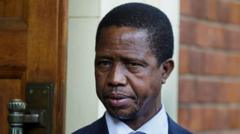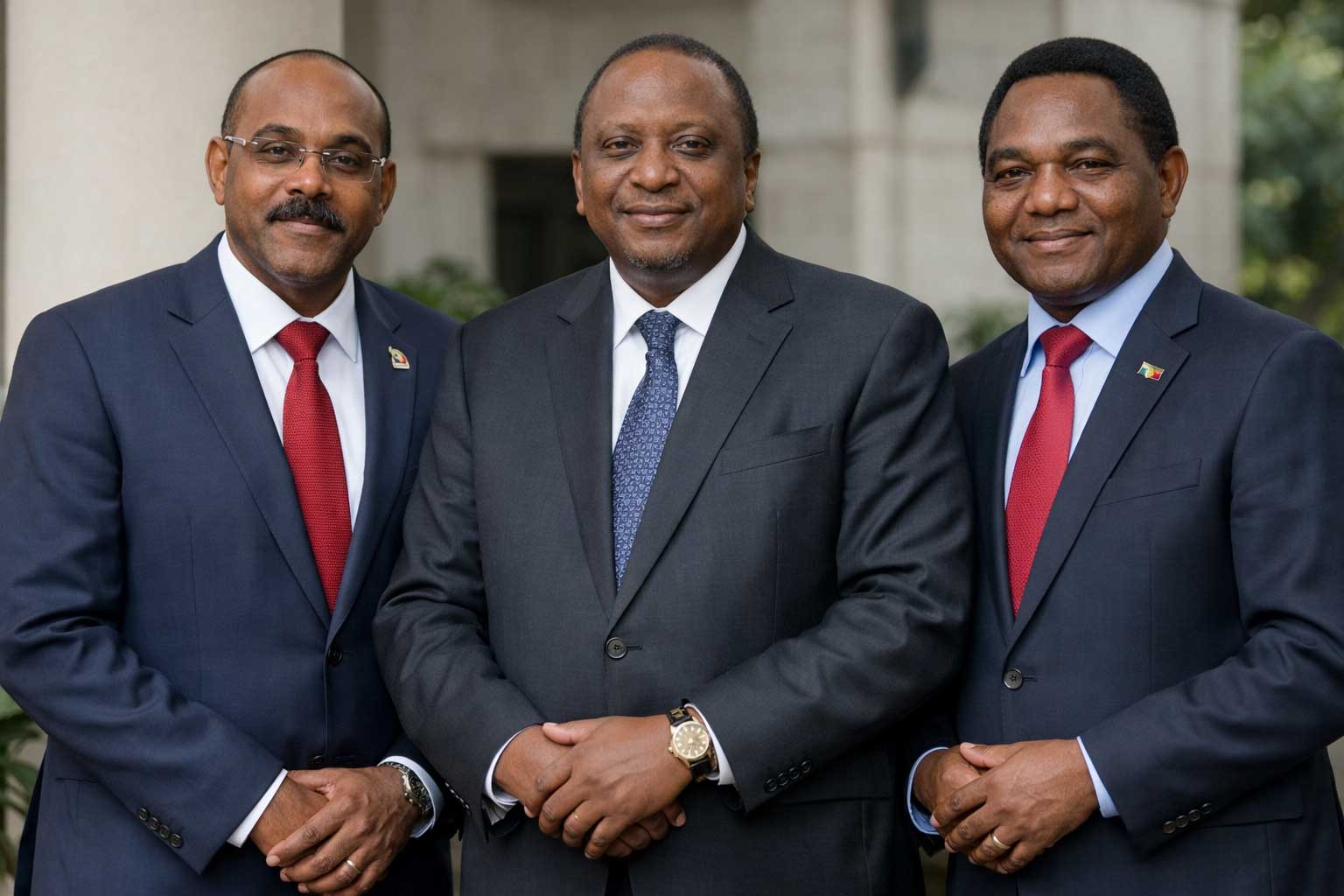The ongoing saga surrounding the remains of former Zambian President Edgar Lungu has taken a controversial turn, as a South African court ruled that his body can be repatriated and given a state funeral, much to the dismay of his family. The ex-president, who died two months ago in South Africa following an undisclosed illness, has become a focal point of political confrontation.
Some Zambians, particularly supporters of the ruling party, expressed glee in social media posts stating, "It's coming home!" echoing a phrase typically associated with English football triumphs. Such reactions underscore the deep divisions and the undignified nature of the discourse surrounding Lungu's death.
Lungu's family is still engaged in legal proceedings to prevent his remains from being returned to Zambia, as they appeal the court's decision. The family expressed outrage during recent court hearings, with Lungu's older sister, Bertha, vocalizing her pain and frustration over the government's actions. They claim that one of Edgar Lungu's final wishes was for his successor, President Hakainde Hichilema, not to attend his burial due to their longstanding political animosity.
The background of this dispute is rooted in the fraught political history between Lungu and Hichilema, particularly during the tense pre-election climate of 2021 when Hichilema faced significant persecution, spending over 100 days incarcerated under treason charges. As accusations and grievances fly, Lungu's family insists they will not relent, prioritizing a dignified burial over the speed of the process, while facing corruption charges of their own.
The government, meanwhile, insists on conducting a state funeral in accordance with tradition, claiming it is in the best interest of public mourning. Attorney General Mulilo Kabesha asserted that Lungu could be honored with a state funeral regardless of family participation, provoking criticism from cultural commentators who argue that this approach undermines the acknowledged mourning process.
Public discourse continues to be hijacked by this dispute as economic woes loom large in the background. Experts criticize the political motivations behind the administration's actions and warn that the insistence on a state funeral—even possibly without family involvement—could further entrench societal divisions.
As the Lungu family's appeal progresses, the struggle seems set to continue, leaving many Zambians caught in the crossfire of a highly politicized and profoundly personal matter that raises questions about grief, dignity, and the legacy of leadership in the nation.





















